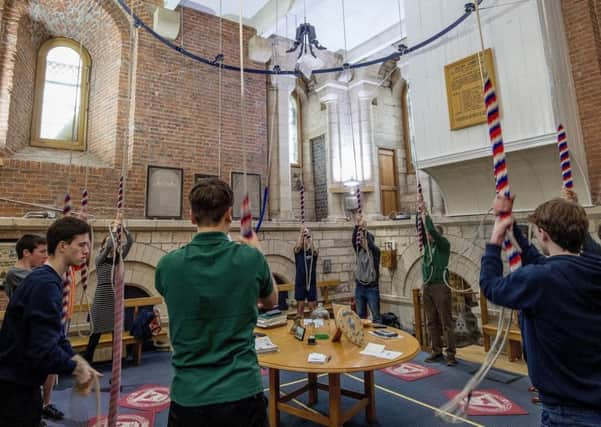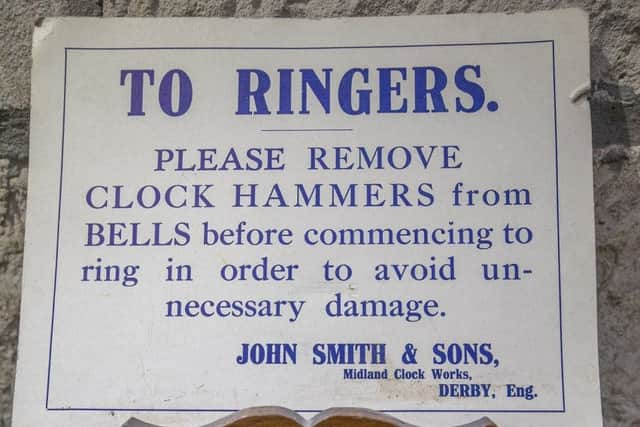Bellringers gather for national contest at Selby Abbey


Brows were furrowed in concentration as six teams of bellringers went head to head at Selby Abbey as part of the National Twelve-Bell Striking Contest.
More mathematical than musical, instead of tunes the bells ring in orderly sequences that the ringers learn in terms of patterns and then ring from memory.
Advertisement
Hide AdAdvertisement
Hide Ad“It’s not as strenuous as you think,” said deputy tower captain Chris Cooper. “You get physical exercise, but the main exercise is mental, it stretches the brain considerably.”


Each team had exactly 30 minutes to practice and then ring their test piece for the judges - and accuracy is key.
Each bell is numbered one to 12, with the lightest bell, known as the treble at one and the heaviest, a “tenor” at 12. “It is all mathematical combinations and permutations of 12 numbers,” explained Mr Cooper. “It concentrates the mind, it is like doing a little puzzle, but it is also a very social thing.”
In the end it was Birmingham, which has won the competition more times than any other team, who made it through to the final, along with teams from St Paul’s Cathedral and the Society of Royal Cumberland Youths.
Advertisement
Hide AdAdvertisement
Hide AdLeeds also got through to the final for the Taylor Trophy, which will be held in Cambridge in June, after coming third in another eliminator round held on Saturday at Ossett Parish Church.


The judges make the final decision, which they can check with a computer system called the Strikeometer that analyses the sound from the bells and assesses the accuracy with which they are rung. Chief Judge Jenny Earis said: “Birmingham were the clear winners.
“They are a very professional team. Their ringing is very even and has a very strong structure and they ring at a very consistent speed, with very few inaccuracies.
“They are a team that have been ringing together for a long time and are very talented and produce superb ringing and deserve to do as well as they do.”
Advertisement
Hide AdAdvertisement
Hide AdWhile the ringing went on competitors and supporters were able to quench their thirst at a beer tent in the grounds of the Abbey, serving up real ale from Selby-based Jolly Sailor Brewery.
Campanology or change ringing began in England in the 17th century, and has been exported to the Commonwealth, United States, Canada, Australia and South Africa.
It means ringers can travel throughout the English-speaking world, to ring on English-style bells. But it is not generally found in Europe, apart from a small pocket in Verona, Italy.
These days it attracts all ages with many passing the hobby down to the younger generation. In Yorkshire a number of youngsters have formed their own group known as the Yorkshire Tykes.
Advertisement
Hide AdAdvertisement
Hide AdThere are over 7,000 churches in Great Britain which have a ringing peal of bells, of which only just over 130 have 12 bells. Selby Abbey was hosting the competition for the first time after it increased the number of bells from 10 to 12 in 1999 to celebrate the Millennium.